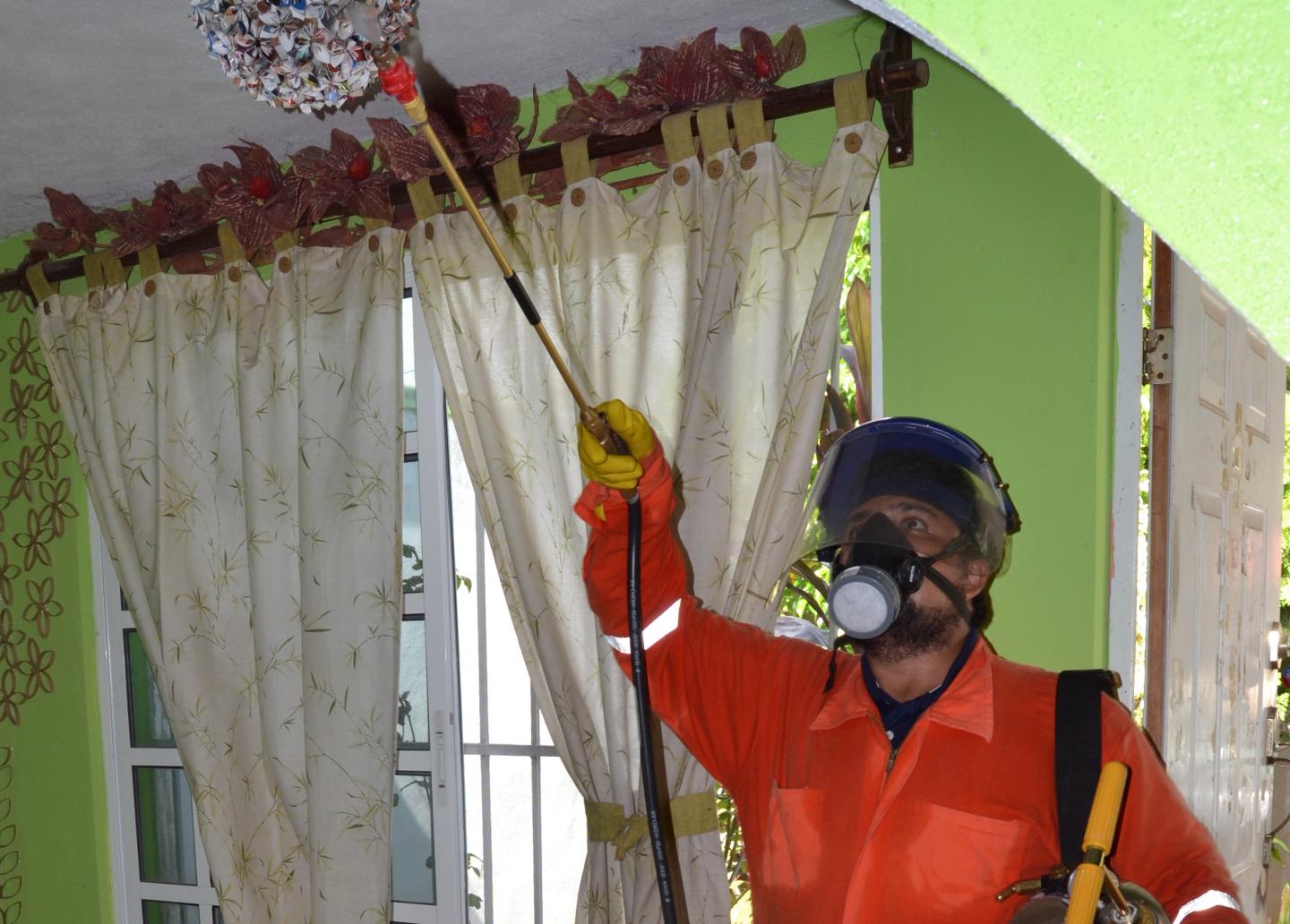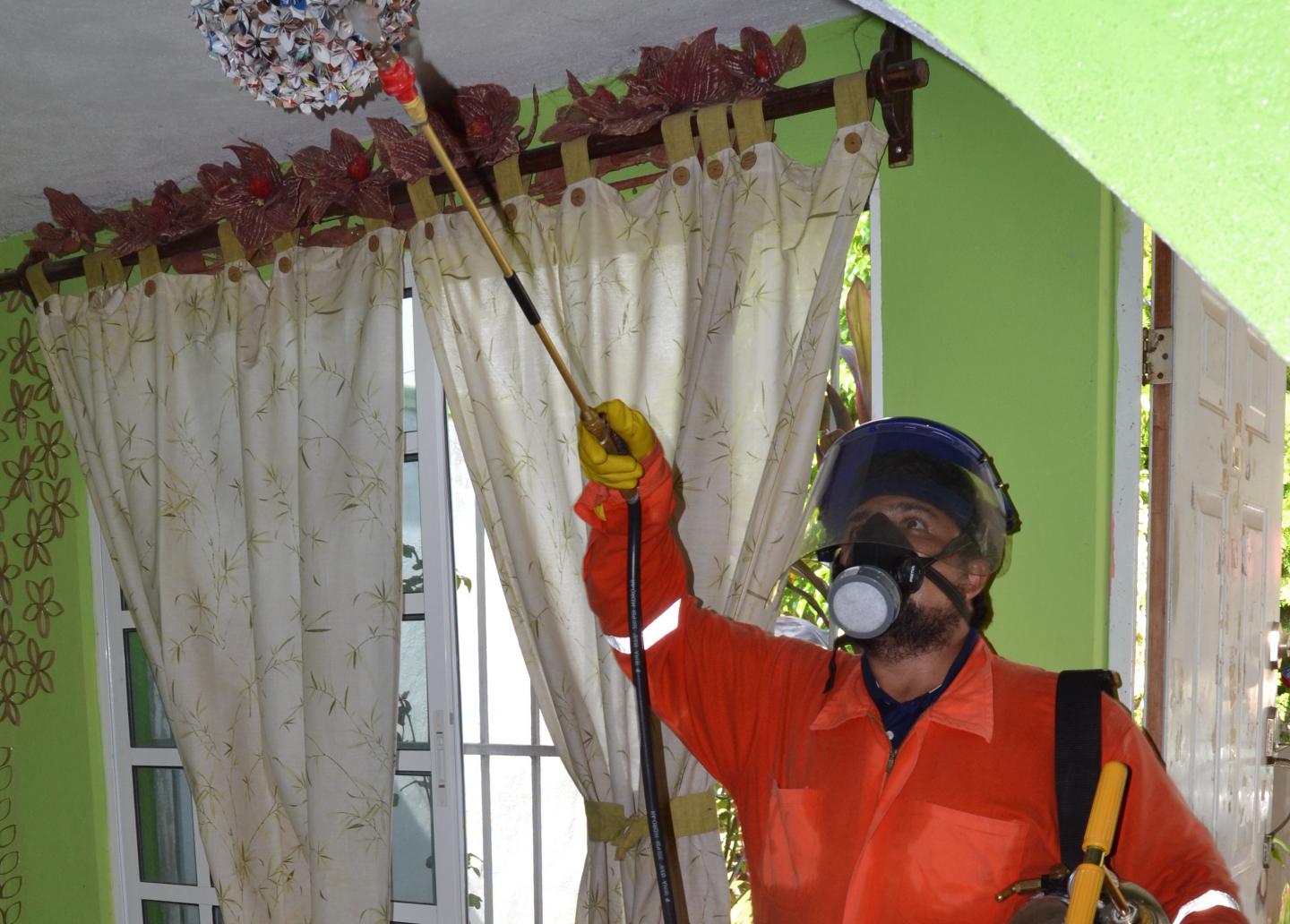
Credit: Photo by Nsa Dada
One of the most common insecticides used in the battle against the Aedes aegypti mosquito has no measurable impact when applied in communities where the mosquito has built up resistance to it, a study led by Emory University finds.
The study is the first to show how vital insecticide-resistance monitoring is to control the Aedes mosquito — which carries the viruses that cause Zika, dengue fever and yellow fever.
The journal PLoS Neglected Tropical Diseases published the research.
"The results are striking," says Gonzalo Vazquez-Prokopec, a disease ecologist at Emory and first author of the study. "If you use the insecticide deltamethrin in an area with high-deltamethrin resistance, it's the same as if you didn't spray at all. It does not kill the Aedes aegypti mosquitos. The efficacy is not different to a control."
The results of the randomized, controlled trial are important because some public health departments in places where Zika and dengue viruses are endemic do not necessarily monitor for insecticide resistance.
"The recent epidemic of the Zika virus has raised awareness that we need to focus on what really works when it comes to mosquito control," Vazquez-Prokopec says. "The data from our study makes a bold statement: Any mosquito-control program involving spraying insecticides needs to be based on knowledge of the current levels of insecticide-resistance of the local mosquitos."
It is not difficult to determine levels of insecticide resistance, he adds. Public health workers can use standardized bioassays to coat a bottle with an insecticide in a specific dose. They can then introduce mosquitos from the area to be monitored into the bottles and observe the number of them killed after 24 hours.
The current study — conducted in three neighborhoods of Merida, Mexico — measured the efficacy of indoor residual spraying against adult Aedes aegypti mosquitos in houses treated with either deltamethrin (to which the local mosquitos expressed a high degree of resistance) or bendiocarb (another insecticide to which the mosquitos were fully susceptible), as compared to untreated control houses.
The bediocarb-treated areas showed a 60-percent kill rate for Aedes aegypti mosquitos during a three-month period, while the deltamethrin-treated areas and the control areas showed no detectable impact on the mosquitos.
It's a natural biological process for mosquitos to mutate in response to insecticide exposure, Vazquez-Prokopec says. These mutations can occur at the molecular level, preventing the insecticide from binding to an enzymatic target site. They can also happen at the metabolic level — when a mosquito's metabolism "up regulates" the production of enzymes that can neutralize the toxic effects of an insecticide.
"Both mechanisms can occur in the same mosquito," Vazquez-Prokopec says, "making insecticide resistance a challenging and fascinating problem."
Even more worrying are so-called "super bug" mosquitos, that show resistance to more than one insecticide.
"You can't stop evolution," Vazquez-Prokopec says. "That's why it's important for countries to have resistance-monitoring systems at both local and national levels to help manage the use of insecticides more efficiently and effectively."
For the past 20 years, there has been a rise in resistance to insecticides in mosquitos, particularly in the Anopheles genus, some of which transmit the malaria parasite. Anopheles mosquitos only bite between dusk and dawn, so the use of bed nets in areas where malaria is endemic have long been a method to reduce the opportunity for mosquitos to transmit malaria.
More than a decade ago, bed nets treated with pyretheroids — a class of pesticides that includes deltamethrin — were rolled out in Africa in a big way to fight malaria. Pyretheroids are commonly used because they are odorless, cheap, long-lasting and have low mammalian toxicity.
The widespread use of insecticide-treated bed nets eventually led to a rise in resistance to pyretheroids by the Anopheles mosquito. The nets, however, still provide a physical barrier between people and mosquitos so they retain some benefit.
A similar rise in resistance is being seen in the Aedes mosquito in some areas. But the Aedes mosquitos bite during the day, making bed nets ineffective and insecticide spraying campaigns more critical to their control.
Previous research led by Vazquez-Prokopec showed that contact tracing of human cases of dengue fever, combined with indoor residual spraying for Aedes mosquitos in homes, provided a significant reduction in the transmission of dengue during an outbreak.
The insecticide-resistance study adds to the growing body of knowledge of what works — and what doesn't — to control the Aedes mosquito in order to lessen the impact of a mosquito-borne disease outbreak, or to prevent one altogether.
"We're always going to be chasing the problem of insecticide resistance in mosquitos, but the more data that we have — and the more tools we have in our arsenal — the more time we can buy," Vazquez-Prokopec says.
###
Co-authors of the study include scientists from Mexico's Autonomous University of Yucatán, where Emory has a long-standing collaboration. The work was funded by the Emory Global Health Institute and Marcus Foundation, the Centers for Disease Control and Prevention, Mexico's CONACYT and the National Health Medical Research Council.
Media Contact
Carol Clark
[email protected]
404-727-0501
@emoryhealthsci
http://whsc.emory.edu/home/news/index.html
Original Source
http://esciencecommons.blogspot.com/2017/06/mutant-mosquitos-make-insecticide.html





